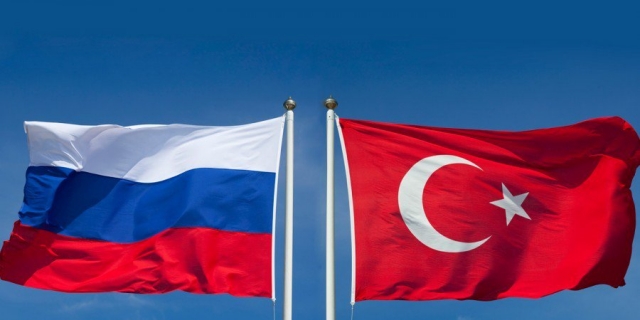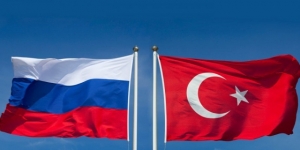Where is Georgia in the Turkey-Russia Crisis?
American experts discussed the implications of the Turkish-Russian conflict and its impact on the South Caucasus. An esteemed panel of scholars tried to connect the historical frames of the Ankara-Moscow relations, while also examining the forces at play in the Syrian crisis and looking at what the individual players were doing to mitigate the bilateral confrontation and to avert its escalation. They also discussed the role the US should be pursuing in all this. Journalist for Voice of America Georgian Service, Anna Kalandadze, followed the discussion at the Johns Hopkins University in Washington and, for the more in-depth effects on Georgia, asked a number of the scholars for specific analysis.
Kurt Volker, former US Ambassador to NATO, addressing the audience from the podium, reviewed the historical trends:
“Russia wants to maintain its military bases in Syria, with this it tries to keep its ties with the Assad regime and the government in Iran, aiming to keep Russia out of the Middle-East developments and highlight its own relevance. President Putin also seeks to boost his popularity inside Russia, while showcasing his military might outside of Russia. So far Putin has had very clear goals in Syria and has pursued them very effectively. Turkey’s interests are also clear and are often contradictory to Russia. We see an excalation and an expansion of a conflict between Turkey and Russia from a geopolitical, geographical, even humanitarian standpoint. However, Washington should recognise that is has more similar interests with Turkey than with Moscow and do everything it can to keep Assad out of power.”
Frederick Starr, Professor at the Johns Hopkins University sees a unique opportunity for the US:
“This is a rare opportunity for the US in which it needn’t take sides but can stand up for all three, for the Caucasus, and where they can all agree. There are plenty of people in Armenia who are concerned about the loss of sovereignty, plenty of people in Georgia who are worried about the loss of territory, and people in Azerbaijan who are worried about the loss of important space that they have created for themselves in the world. All of this is in danger now.”
Experts, in conversation with VOA, also conceded that Georgia was in an especially weak position now that the US President is in his last Presidential term and the US public is more focused on domestic issues, namely the US elections, rather than foreign developments. Some experts predict Russia may do more to directly target its neighbors, as it did in August 2008.
Frederick Starr: “Georgia is in an especialy complex situation. I remember August 2008, three months before the end of the US President’s last term. It’s the same situation now, US and Brussels are more concentrated on their domestic affairs than on the international situation. Because of the Presidential election campaign, Washington does not follow its foreign policy well. As such, I feel Georgia is an easy target for Russia.”
Svante Cornell, Director, Central Asia-Caucasus Institute, Johns Hopkins University:
“The danger now is that this conflict (between Russia and Turkey-AK) adds enormous volatility to an entire region which does not need any more volatility: where there was a stable geopolitical situation in the Caucasus, it’s no longer the case. We see drastic and rapid changes in the activities of foreign powers. Right now, the main impact will be on Armenia-Azerbaijan as their conflict directly relates to the Turkish-Russian confrontation; we see Russia’s activities in Armenia and it is not excluded that the Russia-Turkey conflict may be manifested in the Nagorno-Karabakh situation. For Georgia, it is more of a general concern, and a broader issue so far, where Georgia continues on a Westward path, although more quietly, and also on the East-West transportation corridor. But it is quite possible for Russia to start creating problems for this corridor. Georgia is a very vulnerable country now, it has not continued to counter Russian subversion and infiltration there, which is happening quiet freely now, and the Georgian government thinks that the cost of countering Russian propaganda is higher than the benefit. At some point I think they have to recalculate this.”
Anna Kalandadze











